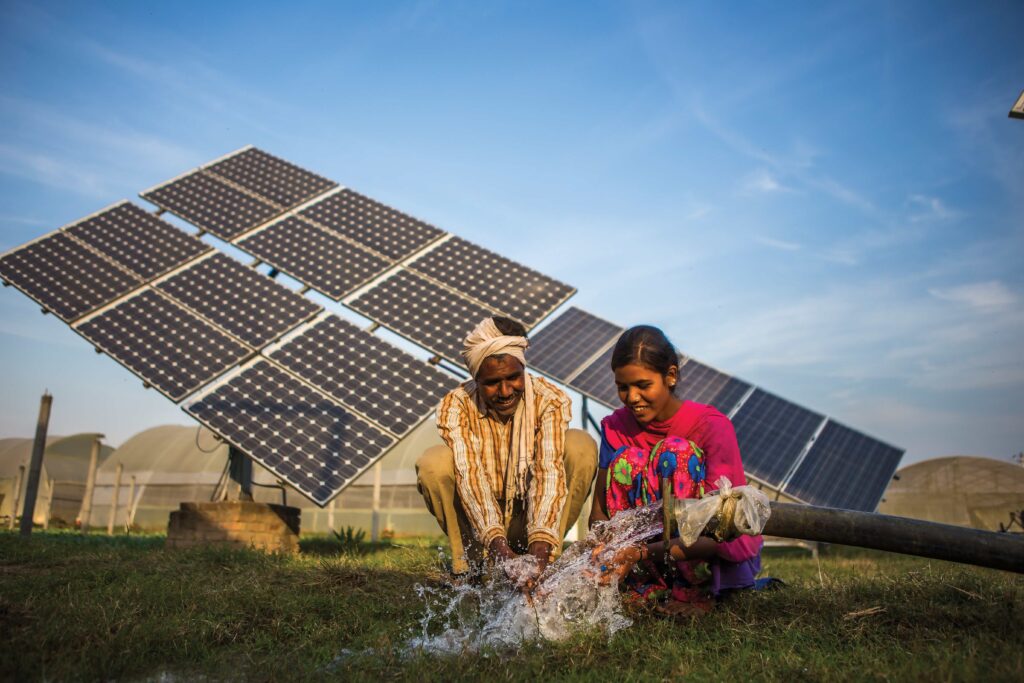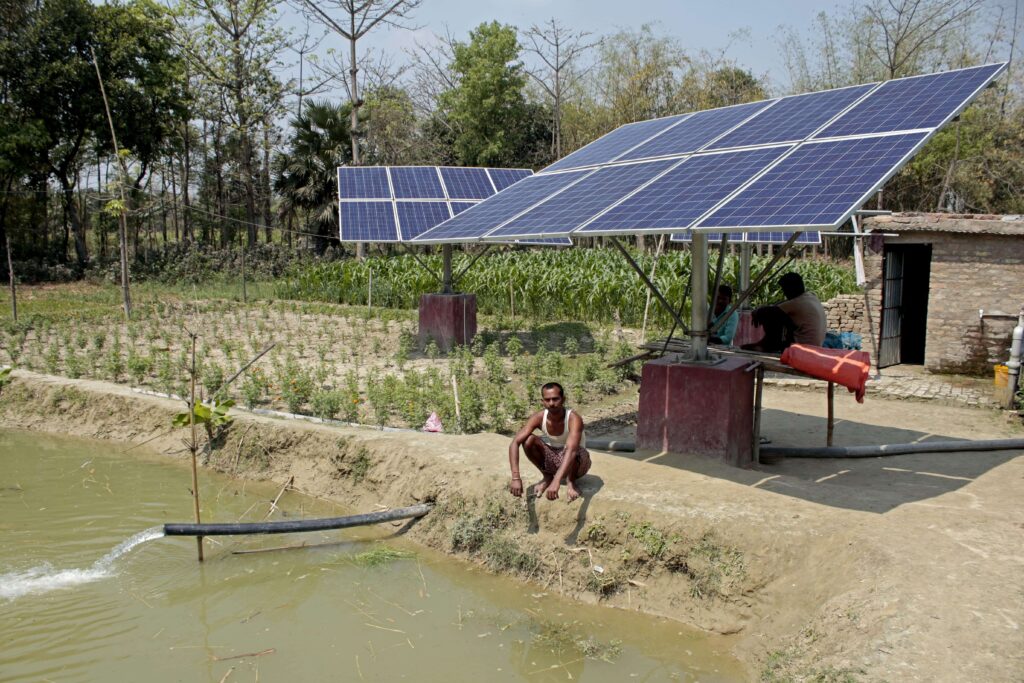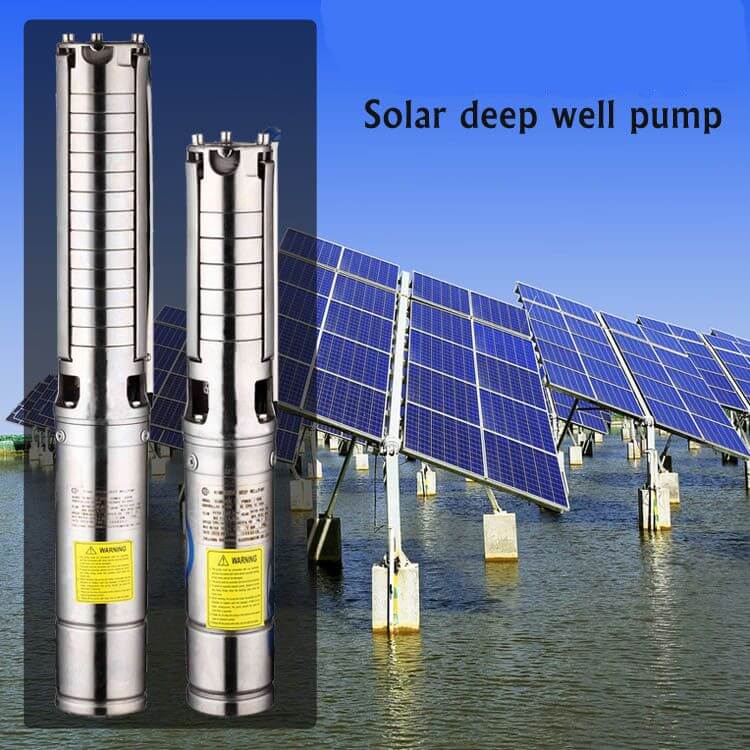How Solar-Powered Well Water Pump Systems Can Provide Water Anywhere
Water is essential for life, but not everyone has access to a reliable and affordable source of water. Many people in rural areas depend on wells to get water for their homes, farms, and livestock. However, pumping water from wells can be challenging, especially when there is no grid electricity or when the grid is unreliable or expensive. That is why many well owners are turning to solar power to run their well water pumps. Solar power is a clean, renewable, and cost-effective way to pump water from wells, even in the most remote locations. In this article, we will explain what solar-powered well water pump systems are, how they work, how much they cost, and which company can supply and install them for you.
What are solar-powered well water pump systems?
Solar-powered well water pump systems are solar power systems that use solar panels, batteries, and inverters to run well water pumps that draw water from wells. Well water pumps can be either submersible or surface pumps, depending on the depth and location of the well. Submersible pumps are installed inside the well and pump water up to the surface. Surface pumps are installed above the well and suck water up from the well. Both types of pumps can run on solar power, as long as they have the right components and configuration.
Solar-powered well water pump systems can be either direct or indirect, depending on the type of power they use. Direct solar systems use direct current (DC) power from the solar panels and batteries to run the well water pumps, which are also DC. Indirect solar systems use alternating current (AC) power from the solar panels and batteries, converted by an inverter, to run the well water pumps, which are also AC. Both types of systems have their advantages and disadvantages, depending on the size, efficiency, and cost of the components.
How do solar-powered well water pump systems work?
The main components of a solar-powered well water pump system are:
- Solar panels: These are the devices that capture sunlight and convert it into DC electricity.
- Batteries: These are the devices that store the excess electricity produced by the solar panels for later use, especially at night or during cloudy days.
- Inverter: This is a device that converts the DC electricity from the solar panels or batteries into AC electricity, which is the standard form of electricity used by most well water pumps. This component is only needed for indirect solar systems.
- Well water pump: This is the device that pumps water from the well to the surface or to a storage tank.
The basic operation of a solar-powered well water pump system is as follows:
- During the day, the solar panels generate electricity and send it to the batteries or the inverter.
- The batteries or the inverter supply electricity to the well water pump, which pumps water from the well.
- The water is either used directly or stored in a tank for later use.
- During the night or when the solar panels are not producing enough power, the batteries supply electricity to the well water pump, if needed.



How much do solar-powered well water pump systems cost?
The cost of a solar-powered well water pump system depends on several factors, such as:
- Well water pump size: The size of your well water pump is measured in horsepower (HP) or watts (W), which is the amount of power it consumes to pump water. The larger your well water pump, the more water it can pump and the more power it needs. However, the larger your well water pump, the more expensive it is to buy and run. The average size of a residential well water pump is about 0.5 HP or 375 W, while the average size of a farm well water pump is about 2 HP or 1500 W1.
- Solar system size: The size of your solar system is measured in kilowatts (kW), which is the amount of power it can produce at peak performance. The larger your solar system, the more electricity it can generate and the more water it can pump. However, the larger your solar system, the more expensive it is to buy and install. The average size of a residential solar system is about 3 kW, while the average size of a farm solar system is about 10 kW2.
- Solar panel type: The type of solar panels you choose affects the efficiency, durability, and aesthetics of your solar system. The most common types of solar panels are monocrystalline, polycrystalline, and thin-film. Monocrystalline panels are the most efficient and durable, but also the most expensive. Polycrystalline panels are less efficient and durable, but also cheaper. Thin-film panels are the least efficient and durable, but also the cheapest and most flexible. The average efficiency of solar panels ranges from 15% to 22%, depending on the type and quality3.
- Installation cost: The installation cost of your solar system depends on the complexity and location of your installation, as well as the labor and materials involved. The more difficult and remote your installation, the more expensive it is. However, hiring a professional installer can ensure a safe and efficient installation and help you qualify for incentives and warranties. The average installation cost of a solar system in the U.S. is about $3 per watt4.
According to EnergySage, a leading online marketplace for solar, the average cost of a solar-powered well water pump system in the U.S. in 2023 was about $9,000 for a 0.5 HP residential system and about $30,000 for a 2 HP farm system, before incentives4. However, this cost can vary widely depending on your location, water needs, and system design.
Which company can supply and install solar-powered well water pump systems?
If you are looking for a company that can supply and install solar-powered well water pump systems for your home or farm, you may want to consider ALORMZAH Foundation, a YEMEN-based company that has been a leader in solar water pumping for over 6 years.
ALORMZAH Foundation offers a range of solar-powered well water pump system packages that can suit different water needs and budgets. They also provide custom design and installation services, as well as after-sales support and maintenance. Some of the benefits of choosing ALORMZAH Foundation are:
- High-quality products: ALORMZAH Foundation only uses high-quality products from reputable brands, such as Waterin,Vansan, Veichi, Lorentz, Grundfos, and Outback. Their products are tested and certified to meet the highest standards of performance and safety.
- Competitive prices: ALORMZAH Foundation offers competitive prices for their products and services, as well as flexible payment options and financing schemes. They also offer free quotes and consultations for their customers.
- Expert installation: ALORMZAH Foundation has a network of qualified and experienced installers who can handle any type of installation, whether it is on the roof, ground, or wall. They also follow the best practices and comply with the local codes and regulations for each installation.
- Excellent customer service: ALORMZAH Foundation provides excellent customer service and support for their customers, from the initial inquiry to the final installation and beyond. They also offer a 10-year warranty and a 25-year performance guarantee for their products.
If you are interested in learning more about ALORMZAH Foundation and their solar-powered well water pump system packages, you can visit their website3 or contact them by phone or email.
Conclusion
Solar-powered well water pump systems are a great way to pump water from wells anywhere, without relying on the grid. They can provide you with clean, renewable, and reliable water, as well as save you money and reduce your environmental impact. However, solar-powered well water pump systems also require careful planning, design, installation, and maintenance, as well as a significant upfront investment. Therefore, it is important to do your research and consult a professional before deciding to go solar with your well water pump.




